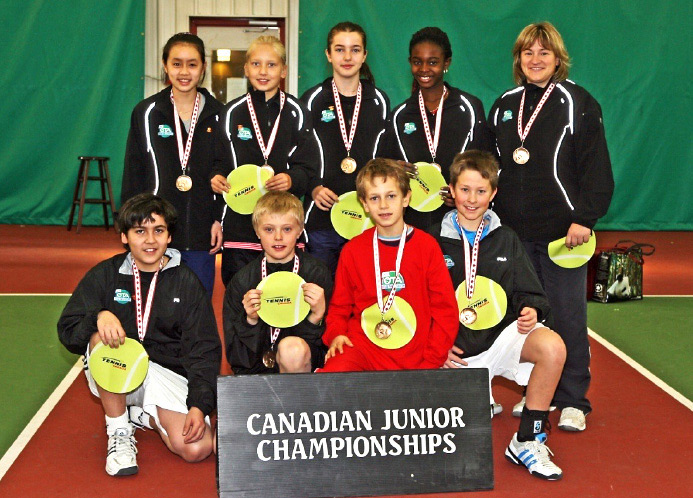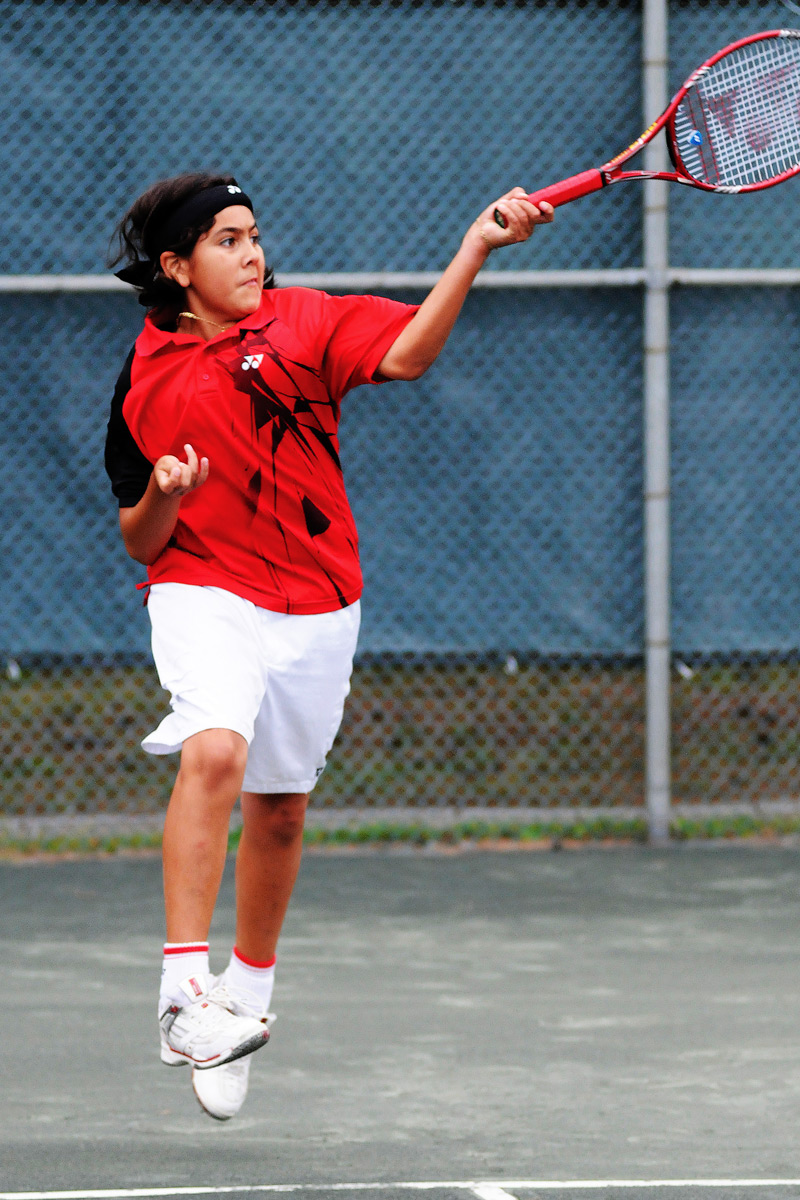There was a competitive match for a Canadian junior championship between two talented lefties from the Greater Toronto Area not so many years ago. Today, the loser is a top 20 player on the ATP Tour. The winner became “the one who got away” in the minds of some Toronto tennis fans.
Tabilo, born and raised in west end Toronto, is now the number two player in Chile, the birthplace of his parents who met and still reside in Toronto.
The loser of that match was Denis Shapovalov, ranked 15 on the ATP Tour at the end of May this year. The winner was Alejandro Tabilo, who has rocketed up ATP rankings from 139 at the end of 2021 to number 80 near the end of May. The two players had been teammates on Canada’s junior Davis Cup team, but they will be on opposite sides of the net the next time they are on a Davis Cup court together.
Diane Guy recalls that national junior final between the two players. She was chair umpire for the match.
“I remember it well. Dennis was upset about losing and I can remember talking with him about it after the match. You could see the passion, fire and skill he had, but he was younger than Alejandro, who was bigger, stronger and had more power,” she said.
“Alejandro was the guy to beat at that time. He was tough for the others to play. He won multiple national indoor and outdoor singles and doubles championships as I recall,” she added.

Guy, who asked the International Tennis Federation to retire her officials’ white badge in 2016, continues to officiate U.S. college matches in Florida where she resides during the winter. In the summer, she plays at the Pine Point Tennis Club in Toronto’s west end. Coincidentally, the Pine Point club played a supportive role in Tabilo’s junior development. Bernie MacPherson, president of Pine Point at the time, recalls Tabilo and his father, Ricardo, showing up at the club’s clay courts one day.
“Alejandro needed to play on clay courts. He was a local kid, grew up nearby. We were happy to help,” he said.
MacPherson also played a role helping Tabilo find his way to Florida for more and better training. He trained at a Florida academy during his teenage years, eventually re-locating to Chile a few years ago.
“We hosted a junior tournament at the club. A coach from Florida happened to be there and I suggested he take a look at Alejandro. It wasn’t much, but I know the family was appreciative of the support at the time,” he said.
Tabilo winds up to hit a lefty forehand at the U18 Ontario Junior Provincial Championships
Pine Point also provided court time, some competition and other support to help Tabilo achieve his dream of being a professional player, something he spoke about even as a youngster, according to MacPherson. Tabilo played a couple of memorable matches for the club’s team in the Intercounty Tennis Association. He and his partner won the matches handily, recalls Vaughan Grater, another long-time Pine Point member and former president. Not surprisingly, MacPherson, Grater and other Pine Point members have followed Tabilo’s rise in professional tennis closely in recent years.

“I lost track of him for a few years. Probably around the time he moved to Chile,” said Enrique Fernandez, who is today co-captain of one of Pine Point’s teams in the Intercountry loop.
“But I watch his matches on television or the internet and follow his results. He has won some big matches this year and defeated name players such as Diego Schwartzman and Cristian Garin, Chile’s number one player,” he said.
“Winning will get him into more main draws, play higher ranked players and help him develop his mental game. I see him as an aggressive counter-puncher and when I think of him playing Davis Cup for Canada alongside Shapovalov, Auger-Aliassime and others….well, to me, he is the one who got away.”
Tabilo played on the Ontario Tennis Association tournament circuit from 2010 to 2015, amassing impressive results. According to coretennis.net, he was eight-time Canadian junior, indoor and outdoor singles champion and four-time doubles champion. He also won the singles championship at the prestigious Eddie Herr tournament and was doubles champion at the Orange Bowl.
Stephanie Myles, writing in a recent issue of her Open Court tennis blog, shed some light on Tabilo’s journey from playing on the clay courts at the Pine Point club as a child to being the number two player in Chile, representing the country in recent Davis Cup and ATP Cup competitions.
“Back in a fallow period in Canadian junior tennis, just before Felix Auger-Aliassime and Denis Shapovalov came on the scene, there was Alejandro Tabilo,” she wrote. “The Toronto-born Tabilo, now 24, opted to represent the country of his parents as he turned pro.
“He’s not the only player to go that route. Most often that’s because support from their home federation isn’t forthcoming once they are done with juniors or college tennis. But Tabilo was a little different in the sense that it was always on his mind to represent his parents’ homeland.”
The Toronto-born Tabilo, now 24, opted to represent the country of his parents as he turned pro.
Tabilo, himself, explained the importance of family when interviewed by www.atptour.com last year following his victory over Denis Kudla at the BNP Paribas Open. It was his first main draw win at the ATP Masters 1000 level.
“For me, seeing everything they have done for me, I love seeing them happy with my results. Everything I do is just trying to make them happy, show them that everything they worked for, all the sacrifices they made was worth something. It’s always something that is in the back of my head,” he said.
Perhaps Bernie MacPherson spoke for other members at the Pine Point club when he said: “Alejandro took the slow train compared to some. I often thought the only limiting factor was belief in himself. He is someone who got away, but I am very happy to see him doing so well.” ●